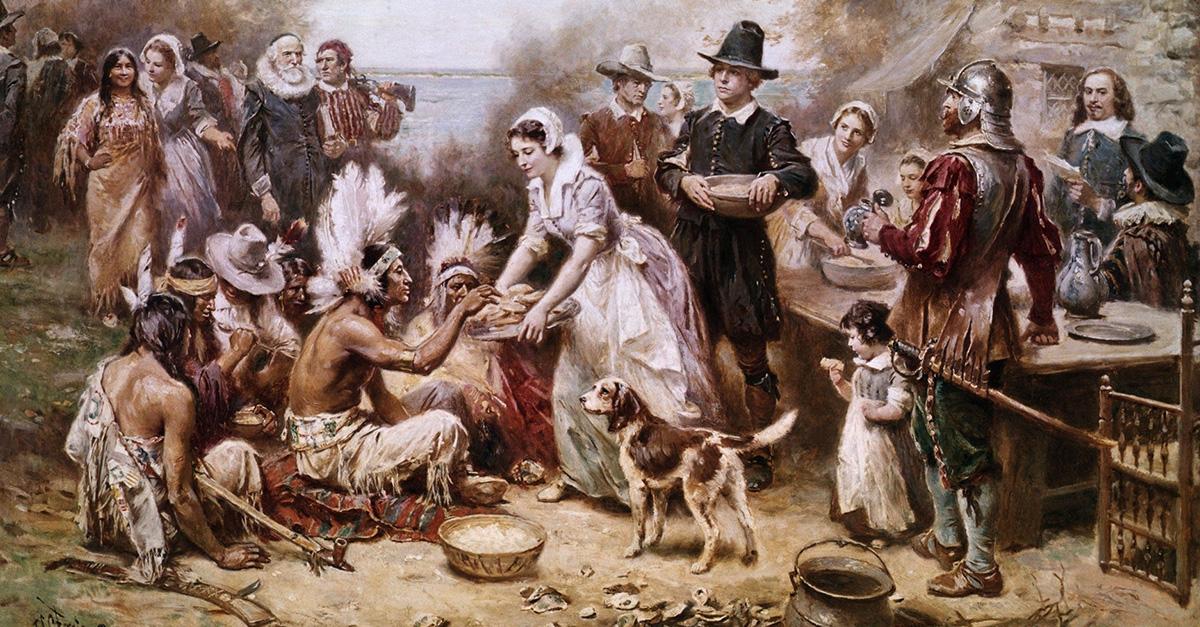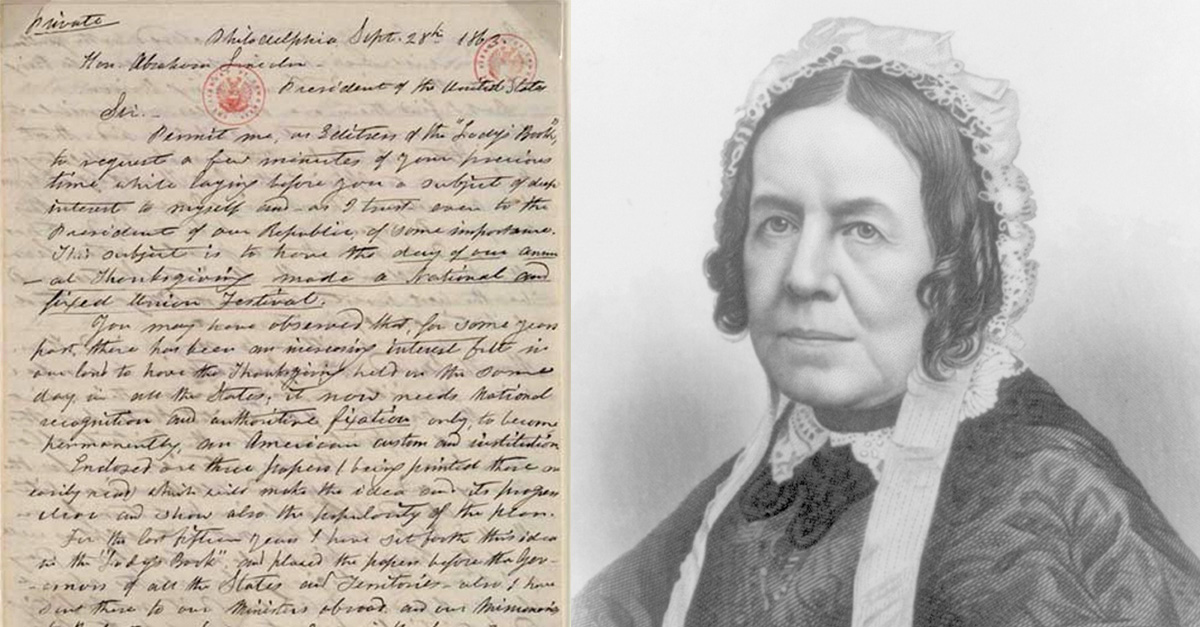


Get a free copy of Parental Rights & Education when you subscribe to our newsletter!

Don’t let the mass media, the retail stores, or our secular culture steal away the opportunity to gather with family and friends and reverently thank Almighty God for all His good gifts — especially the supreme gift He has given us in Jesus Christ.
Over the last few years, I’ve noticed a troubling trend in the festive habits of my fellow countrymen.
I played some chess growing up, but right now I’m not searching for Bobby Fischer. I’m searching for our forgotten American holiday: Thanksgiving.
What’s happened? Why has this cultural amnesia set in, leading Americans to skip over one of our most important, and quintessentially American, holidays?
First, the near disappearance of Thanksgiving from our celebratory liturgies is, in large part, due to the commercialization of the competing holidays that bookend our dedicated day of gratitude. Sandwiched between the profitable sales “giants” of Halloween and Christmas, media and retail marketers have decided that giving thanks just doesn’t sell.
Walk into any major retail store, and the scene is the same. Overnight, end caps go from bursting with candy to being flooded with stocking stuffers. Halloween, with its costumes and candy, sets the stage for a month-long shopping frenzy that culminates in the gift-giving extravaganza of Christmas. Walmart, Target, Costco, you name it, barely allow the leaves to turn before decorations shift from pumpkins to reindeer, blurring the lines between these distinct holidays. This rapid-shift pours gas on the fire of year-end spending — and sidelines Thanksgiving.
Second, the gradual disappearance of Thanksgiving from its traditional prominence in American culture can also be attributed, in part, to the ongoing secularization of the nation. As the U.S. has moved towards a more secular society, where religious observances are less emphasized in the public sphere, the inherently religious roots of Thanksgiving have been overshadowed. This holiday, with its historical ties to giving thanks to Divine Providence, has seen its spiritual essence diluted by a society increasingly focused on inclusivity.
Finally, what little attention is paid to Thanksgiving these days is almost always focused on “Black Friday” shopping details. Quite ironic (and sad), isn’t it? The one holiday we have in America dedicated to giving thanks and expressing gratitude to God for all that we already have has been co-opted by a consumer product sales agenda with one goal in mind: Getting you to buy more stuff.
Given this unfortunate development, I have a modest proposal: It’s time to make Thanksgiving great again.
But how? Three suggestions.
Thanksgiving began as an explicitly Christian holiday, rooted in the Protestant faith and practice of the early European settlers in America. The first Thanksgiving in 1621 was not just a communal feast but also a religious observance, where the Pilgrims, who were devout Separatists seeking religious freedom, gave thanks to God for their survival and successful harvest following a harsh winter. This event mirrored the Christian tradition of giving thanks found in the Bible, notably in the Psalms, where thanksgiving is expressed through prayer and communal celebration.
Over the years, national days of thanksgiving were proclaimed during times of significance, often with direct references to God’s providence and mercy. For instance, George Washington’s first Thanksgiving proclamation in 1789 explicitly acknowledged the “many signal favors of Almighty God,” setting a precedent for viewing Thanksgiving as a day to recognize Divine blessings.
In 1863, amidst the Civil War, when President Lincoln made Thanksgiving an official national holiday, his proclamation was imbued with Christian sentiment, calling upon Americans “to set apart and observe the last Thursday of November next, as a day of Thanksgiving and Praise to our beneficent Father who dwelleth in the Heavens.” He invited the nation to not only give thanks for the blessings of the year but also to pray with “humble penitence for our national perverseness and disobedience.”
From its inception, Thanksgiving was founded on the recognition that everything we have has been given to us as a gift from God and that our posture in celebration should be one of gratitude towards the Lord.
When you gather with your families tomorrow, remember that. Acknowledge it. Don’t just “be thankful” in general. Give thanks to God.
If you’re not careful, our culture will lead you right from Halloween to Christmas, papering over the importance of Thanksgiving with some football games and Amazon Prime deals. Don’t let that happen.
Rebel against the commercialization of our holiday season however you can. Some might object to this but consider waiting until after Thanksgiving to hang the lights and blast the Christmas music. Use the month of November to reflect upon all the good things that God has given you: family, home, church, a job, your friends — whatever it may be.
Don’t let the allure of cheap TVs draw your mind away from meditating on what you already have. Consider making a list, writing down one new thing each day in November, and thanking God in prayer for that blessing in your life.
Work to focus on the spiritual and communal essence of the holiday rather than the consumer-driven aspects that often dominate the season. For example, you can incorporate Scripture readings, prayers of gratitude, and hymns into your Thanksgiving celebration.
While our culture might change, God does not. James 1:17 reminds us that “Every good and perfect gift is from above, coming down from the Father of the heavenly lights, who does not change like shifting shadows.”
Finally, as you celebrate Thanksgiving, with the food, fun, and festivities that are appropriate to the day, remember and honor Jesus Christ.
I add this because, as Christians, we should always go one step further when it comes to “Thanking God” for His gifts. Yes, celebrate the Divine providence and blessings of God, but not in some detached or deistic manner.
God has not just given us homes, families, and full tables. He has given us eternal salvation, the forgiveness of sins, and life everlasting in His Son, our Savior, Jesus Christ.
Let every bite of turkey, every laugh shared with a friend or family member, every embrace from a relative you haven’t seen for years remind you to lift your eyes to the throne of Christ, who ever lives to intercede for us.
Recall the words of the Apostle Paul in Romans 8:32, who joyfully proclaimed the goodness of God when he reminded his readers that “He who did not spare his own Son, but gave him up for us all—how will he not also, along with him, graciously give us all things?”
Even if your celebration is more meager than you wish it would be, or if you’ve had a rough year and when asked to list what you’re thankful for have a hard time saying anything more than “I guess just to be here,” if you are in Christ, you have everything you need. It might not be everything you want, but it is everything you need.
If we want to make Thanksgiving great again, we need to remember the reason for our thanks in the first place. We must acknowledge the Source of all of our good gifts — Almighty God — and the supreme gift He has given us in Jesus Christ.
I hope that tomorrow when you gather with friends and family, your household becomes a little platoon in a larger rebellion against the disappearance of Thanksgiving in American life.
Thanksgiving is a Christian holiday. It’s an American holiday. It’s on our calendars for a reason, because once, in our country, we knew how important it was to slow down, remember, and give thanks to God for His blessings.
Don’t let the mass media or the retail stores steal that away from you, your family, or our nation.
So, let’s make Thanksgiving great again — because giving thanks to God is one of the greatest things we can ever do.
If you like this article and other content that helps you apply a biblical worldview to today’s politics and culture, consider making a donation here.

Notifications